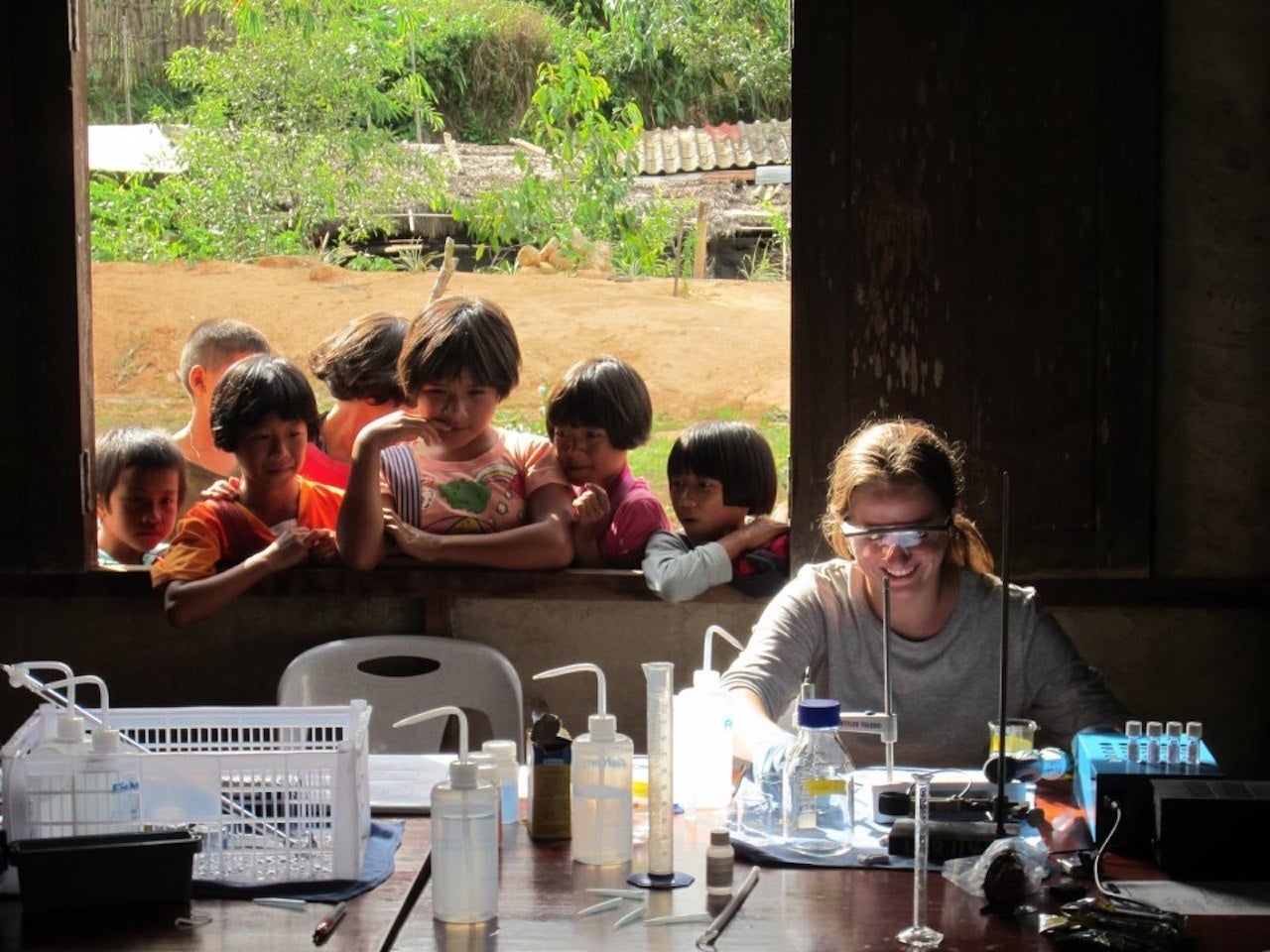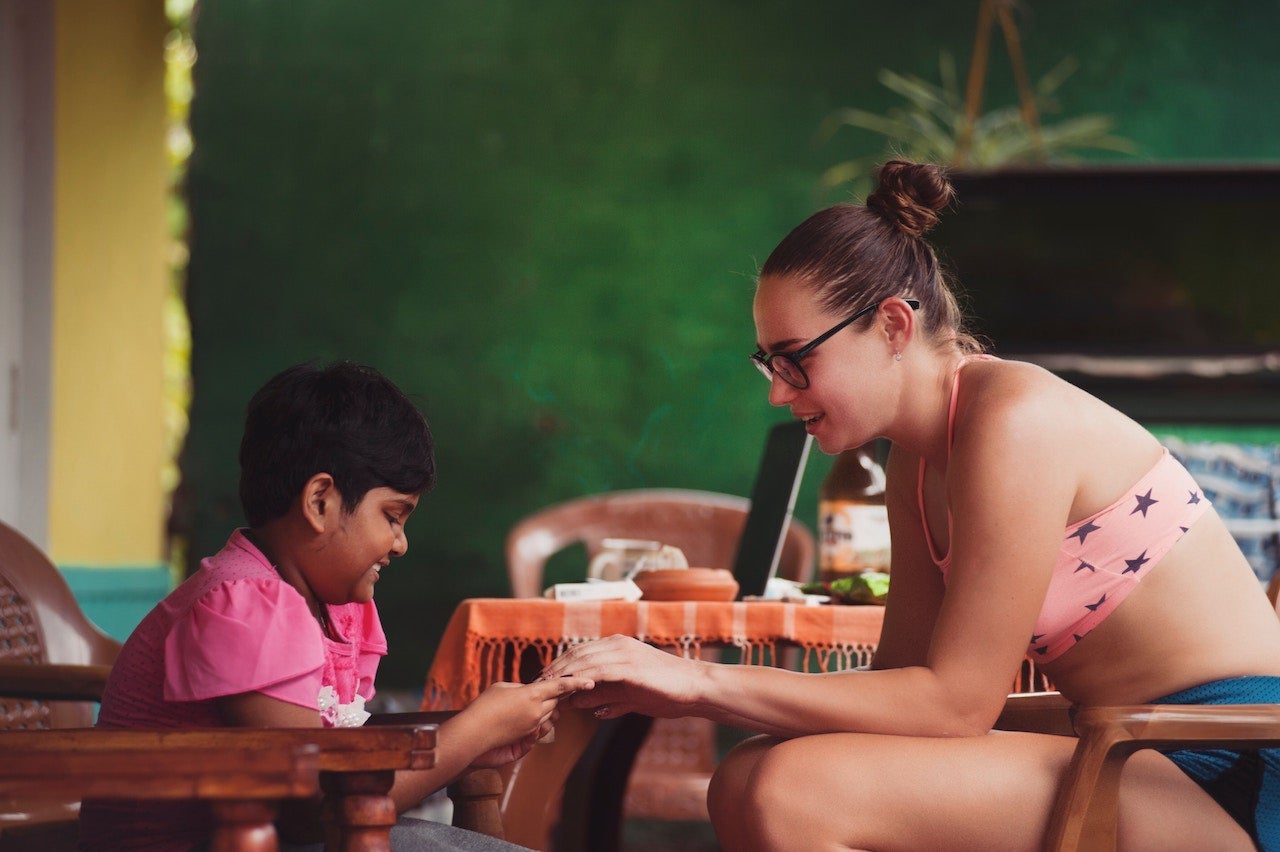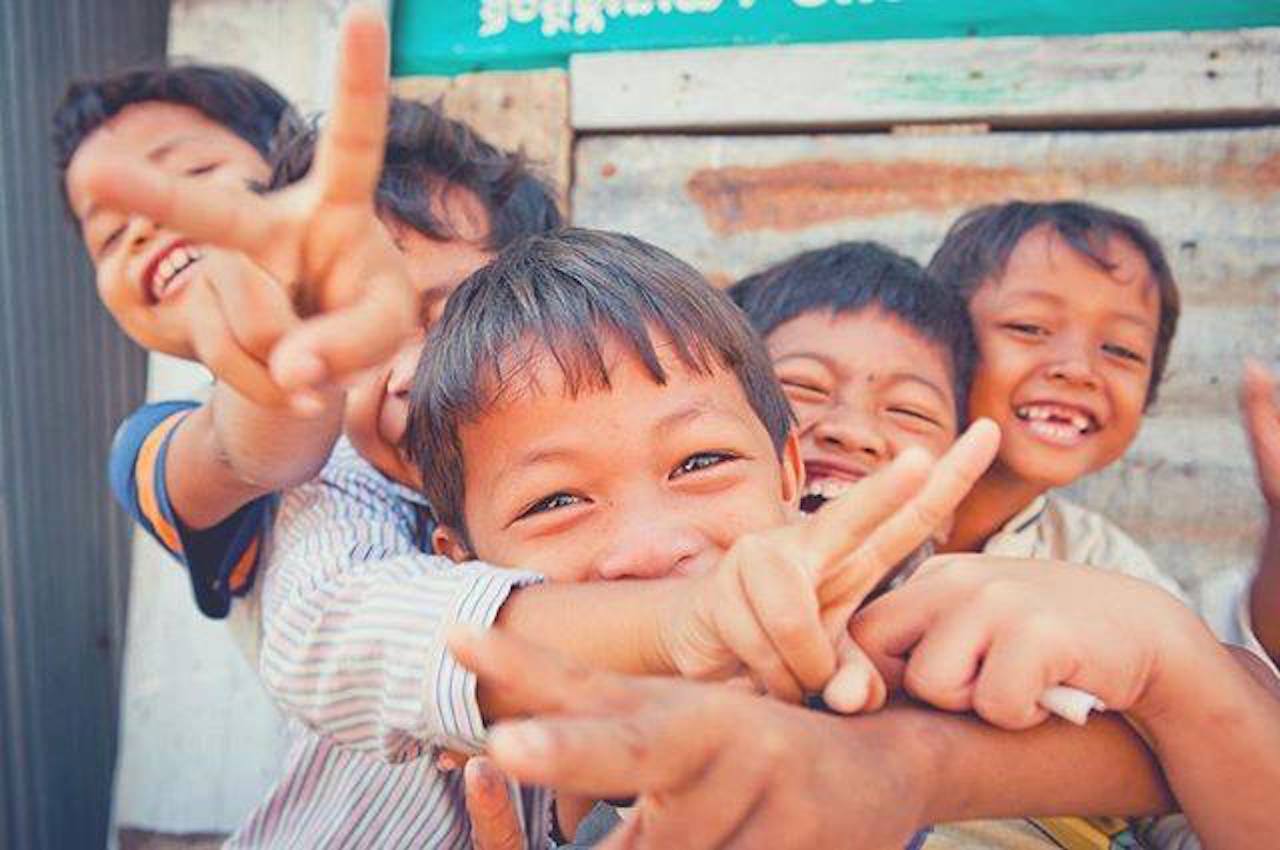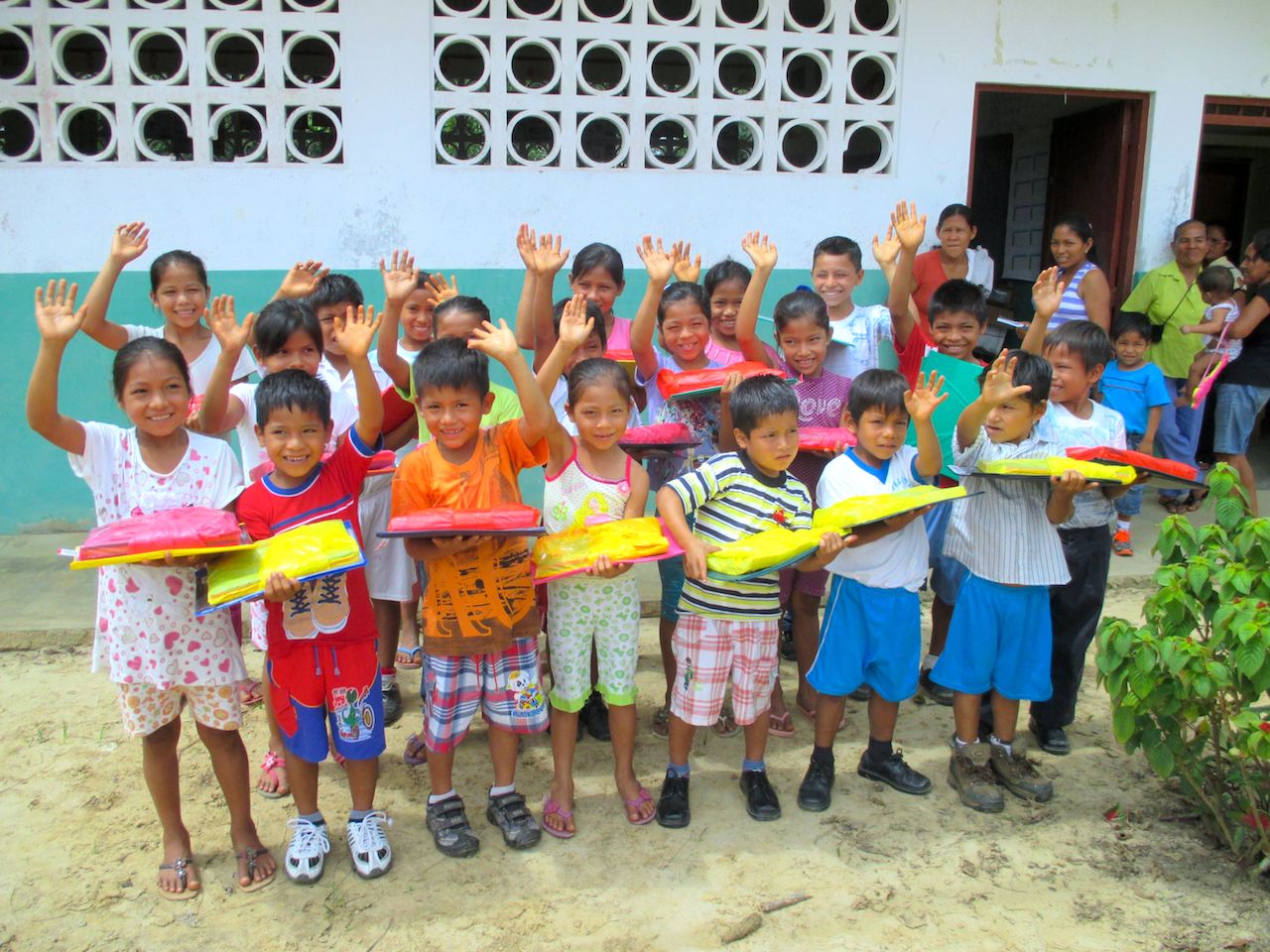8 Tips for Planning a Voluntourism Trip
We're partnering with Capital One to launch our new Purposeful Travel Hub. If you have unique ways you like to pay it forward when you travel or just love exploring new places with family and friends, we want to hear about it. Share your most treasured travel moments and purposeful travel tips with us using #MeaningfulMoments.
If you're interested in volunteering while traveling — or voluntourism, as it's now commonly called — it may seem simple to book the first thing you find. And suddenly, you're off to an orphanage in Asia for two weeks.
But as with any charitable endeavor, it's important to do your due diligence to be sure your efforts are addressing the genuine needs of a community or an ecosystem. This is especially true when you consider the sheer number of people participating in voluntourism. According to a recent survey conducted by Capital One, 26% of travelers have taken a trip designed to help them give back. And nearly half of those surveyed said it's a "a goal" to contribute to the community they're visiting.
"Humanitarian travel can be incredibly rewarding for all parties involved, but it is also important to recognize the potential that travelers can do more harm than good, often inadvertently, when working with people in vulnerable situations such as conflict, natural disaster or extreme poverty. The most important thing is to ensure your actions are responding to local needs," said the PeaceJam Foundation's director of programs, Lauren Coffaro.
Volunteering can be a wonderful way to help those in need while having a memorable experience. It's simply important to do it right. That means addressing any ethical or moral concerns, researching companies and tour operators thoroughly and being realistic about what you can accomplish.
Before you plan your next charitable trip, consult these expert-approved tips to ensure you have a trip of a lifetime that does as much good for the people, places or animals you interact with as it does for you.
1. Start With Your Strengths
Are you a doctor? An educator? Are you passionate about conservation or learning languages? Do you love hands-on work like construction or knitting? Focusing on your talents and interests can help you can identify the best charitable trip for you. Perhaps you'll travel to:
- Work with children
- Teach English
- Volunteer at an animal shelters or wildlife sanctuary
- Rebuild after a natural disasters
- Participate in an ocean, beach or national park cleanup
Don't be afraid to think outside the box when it comes to your talents. Did you know organizations like Plumbers Without Borders, Translators Without Borders, Engineers Without Borders, Bankers Without Borders, Programmers For Peace, even Magicians Without Borders all exist? Bringing not just your willingness to help but your expertise can make you all the more valuable to organizations on the ground.


2. Pick the Right Destination
Once you've narrowed down what style of volunteering you'd like to do, start searching. Google is your friend here.
If your ideal trip involves helping children, for example, think about where you could do the most good. Do you speak another language? Have you taught English as a second language? Language skills or familiarity with the local culture can make you far more useful to local organizations.
Instead of traveling with a US-based company or institution, challenge yourself to find an organization on the ground. Once you leave, after all, someone in the community will have to carry the torch.
Coffaro says to ask: "Is the organization you are working with run by locals, or in partnership with locals? Is the help you are providing (in-kind donation, translation, teaching a class, manual labor, etc.) something that was requested by the local community? Do local government, NGOs and your country's embassy say it is advisable to travel to the region? Do your research and be critical about what is the most mutually beneficial way to help."
3. Research the Organization Thoroughly
"Many of us want to give back when we travel, and service and volunteering is a great way to do that," Kate Cumbo, PeaceJam's executive director told TPG. "But how do you ensure you are doing this service 'with' those affected by an issue and not 'to' them? You can find a group or organization on the ground that has a good track record and offers opportunities to interact with and work side by side with those you are serving. One litmus [test] for this is to ask if the service you are giving is meaningful for you and for those you are working with," she said.
Once you've narrowed it down to a few organizations you'd like to work with, read reviews and research the nonprofits. Make sure what's being done is actually positive and not negatively affecting the local community in any way. Read blog posts from travelers who have volunteered there and see if the organization has been rated or ranked by a trusted site like Charity Navigator.
TPG's director of marketing and communications, Becca Denenberg, does extensive investigating to select the charities TPG works with. She suggests doing lots of research before donating funds or time to any charitable organization. "Hearing about organizations from family and friends is always the way to go. This way you'll know firsthand about the great work they are doing."
It's completely OK to ask the organization to provide evidence of how volunteers have positively helped their organization. Seeing how the organization talks about their community and projects is really important, too.
Questions to ask before committing:
- What exactly will I be doing? What does a typical day look like?
- How much does it cost?
- What's included in the cost for me? (Think: food, accommodations, a stipend.)
- How much of that money goes toward the cause?
- How does your organization help?
- How do you select volunteers?
- Can you put me in touch with past volunteers?
- Are there any safety concerns I should consider?
- What vaccines will I need?
- What should I pack? What will I need to wear?

4. Go For as Long as You Can
Unfortunately, your vacation time may not allow you to jet off somewhere for six months to help those in need. But many week-long volunteer projects have been criticized for being topical and not really helping. With the right research, you can find a way to make just a week beneficial. Or, if you can, extend your trip just a bit longer to make sure your efforts have a deeper impact.
Here at TPG, we've had especially positive experiences with the organizations such as the Elephant Valley Project, BStrong Disaster Relief and Blue Ventures Marine Conservation and the Sepilok Orangutan Rehabilitation Centre in Borneo.
5. Be Wary of Certain Operations
While helping children is one of the most popular types of voluntourism, it is also one of the most problematic. Your visit may actually be promoting corruption and child trafficking.
According to UNICEF, 75% of children in orphanages in Cambodia are not actually orphans, and usually have at least one living parent or have been trafficked. Orphanages in developing countries are often spots known for physical and sexual abuse, and your visit, which may have left your heart warm, could have just created attachment issues for a child.
Carefully research any institution that may require you to work with children, and take a look at these ChildSafe Traveler Tips that can be applied to any emerging country. Also consider alternative ways to work with or help children during your travels. Remember, children themselves are not tourist attractions.

Be very careful when choosing to volunteer with animals, too. Many so-called animal "sanctuaries" drug animals, offer rides on them and abuse them into submission. Any place with dancing monkeys, elephants with chairs on their backs or tigers that allow you to pet them are almost certainly not treating the animals right, or protecting them. Read more about safe and responsible ways to interact with animals.

6. Look Around You
Voluntourism isn't just about traveling. If a far flung, six-month trip to an exotic locale isn't an option for you (or your budget), there are plenty of ways to help out — causes you can travel for — without leaving the country. Get involved with communities in need of aid after a hurricane, or see if your hotel offers any volunteering programs.
In Vermont, for example, the Kimpton Taconic has partnered with the Merck Forest & Farmland Center to monthly drop-in days to guests, during which travelers can help maintain trails or care for farm animals. In Boston, the Hotel Commonwealth is providing round-trip transportation for guests to the Massachusetts Coalition for the Homeless, where they'll build and paint a bed for a child in need.
7. Volunteer During Already-Planned Trips
It's OK if you don't want to dedicate an entire vacation to volunteering. There are so many ways you can help by spending just one day or a few hours — even a couple seconds packing something for those in need. Before your next trip, consider working with an organization that facilitates short volunteer activities or donation drives.
- Pack For a Purpose: Bring items like pencils, paper, art supplies and medical supplies in your suitcase to donate during your travels. This organization will help you tailor your packing list to the specific needs of the initiative you're passionate about or the destination your visiting.
- I Support the Girls: Drop off menstrual products or gently-used bras at destinations around the world. In addition to major US cities, I Support the Girls has a presence in Canada, Australia, Pakistan and the Philippines.
- Big Brother Mouse: Spend a few hours practicing English with locals in Laos with this organization that supports literacy.
- Habitat For Humanity: One TPG employee had an amazing experience in Ethiopia with this charity.
- Lanai Cat Sanctuary: Spend the day socializing with stray cats at this sprawling cat paradise in Hawaii.
8. Be Honest With Yourself
If you want to plan a voluntourism trip, make sure to evaluate the real reason you want to do this before going. What are your motivations and goals? It shouldn't be about you. To truly help, you should be 100% focused on the cause at hand — ready for the responsibility and the commitment. Be humble, pack light and volunteer for the right reasons.

Unless otherwise indicated, Capital One does not endorse and is not affiliated with any organizations or individuals named in this material. All trademarks are the property of their respective owners.
TPG featured card
at Capital One's secure site
Terms & restrictions apply. See rates & fees.
| 5X miles | Earn 5X miles on hotels, vacation rentals and rental cars booked through Capital One Travel |
| 2X miles | Earn unlimited 2X miles on every purchase, every day |
Pros
- Stellar welcome offer of 75,000 miles after spending $4,000 on purchases in the first three months from account opening. Plus, a $250 Capital One Travel credit to use in your first cardholder year upon account opening.
- You'll earn 2 miles per dollar on every purchase, which means you won't have to worry about memorizing bonus categories
- Rewards are versatile and can be redeemed for a statement credit or transferred to Capital One’s transfer partners
Cons
- Highest bonus-earning categories only on travel booked via Capital One Travel
- LIMITED-TIME OFFER: Enjoy $250 to use on Capital One Travel in your first cardholder year, plus earn 75,000 bonus miles once you spend $4,000 on purchases within the first 3 months from account opening - that’s equal to $1,000 in travel
- Earn unlimited 2X miles on every purchase, every day
- Earn 5X miles on hotels, vacation rentals and rental cars booked through Capital One Travel
- Miles won't expire for the life of the account and there's no limit to how many you can earn
- Receive up to a $120 credit for Global Entry or TSA PreCheck®
- Use your miles to get reimbursed for any travel purchase—or redeem by booking a trip through Capital One Travel
- Enjoy a $50 experience credit and other premium benefits with every hotel and vacation rental booked from the Lifestyle Collection
- Transfer your miles to your choice of 15+ travel loyalty programs
- Top rated mobile app


